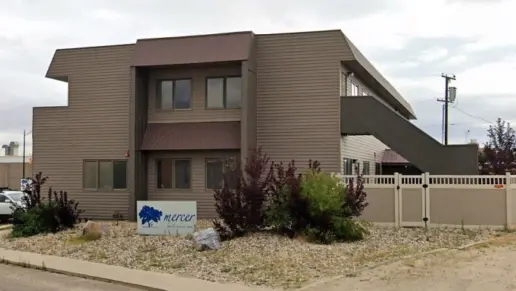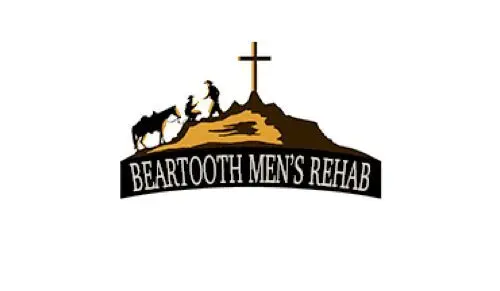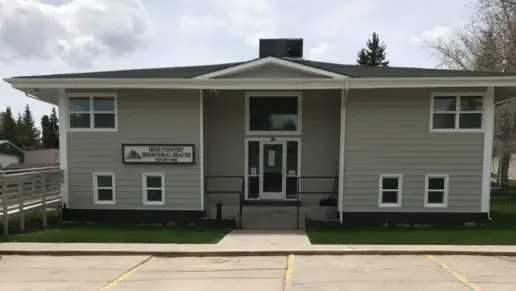About Personal Frontiers
Personal Frontiers Inc is a behavioral health facility that supports adults with substance use and mental health issues in Gillette, Wyoming. They provide quality care that empowers you and your family to sustain lifelong recovery. They can assist you in overcoming lifelong substance misuse or co-occurring conditions. They’re one of the oldest substance use treatment providers in Campbell County.
The facility is easy to access via South Miller Avenue and I-90 routes. The Dalbey Memorial Park is just a short drive away. This park features walking trails, a pond and open spaces. It’s a great place to relax or enjoy outdoor activities that support your recovery. Gillette is a small but connected city. It is often called the “Energy Capital of the Nation.” This is given its strong mining and energy industries.
The facility primarily offers substance use evaluation, education and intensive outpatient programming (IOP). Their clinical team conducts evaluations during intake to determine the type and intensity of treatment you may need. They offer various forms of evaluation. This includes the addiction severity index (ASI), domestic violence or anger assessment, and counseling needs assessment.
Evaluation also helps the clinical team create customized care plans that address your core recovery needs. You’ll immediately begin your recovery via the IOP if the evaluation shows you need rigorous therapeutic support. This program involves 96 clinical hours of group therapy focused on building healthy coping strategies, sober life skills and relapse prevention.
You’ll also attend individual counseling to address personal challenges with your primary therapist. A case manager will help coordinate care and link you to community resources that support lasting recovery. This includes safe housing, job opportunities and medical care. Aftercare programming is part of the complete IOP as well.
The facility also offers medication assisted treatment to support folks struggling with opioid use or alcoholism. This means using FDA approved meds to curb cravings and ease withdrawal symptoms. This may be part of the broader IOP or a standalone therapy.
A great education can play an overall positive role in your recovery journey. The facility provides quality educational courses on anger or domestic violence management. DUI offenders can benefit from their 8 and 12-hour DUI courses. They also offer nicotine and vaping courses for adolescents. Love and logical parenting courses are available for parents in recovery too.
Accepted Insurance
Other Forms of Payment
Medicaid is a state based program that helps lower-income individuals and families pay for healthcare. Medicaid covers addiction treatment so those enrolled can use their coverage to pay for rehab. When a program accepts Medicaid the client often pays very little or nothing out of their own pocket.
Private insurance refers to any kind of healthcare coverage that isn't from the state or federal government. This includes individual and family plans offered by an employer or purchased from the Insurance Marketplace. Every plan will have different requirements and out of pocket costs so be sure to get the full details before you start treatment.
Self-pay involves paying for treatment out of your own pocket. You can use savings or credit, get a personal loan, or receive help from family and friends to fund your treatment. If you don't have insurance or your insurance plan doesn't cover a specific program, self-pay can help ensure you still get the care you need.
Financial aid can take many forms. Centers may have grants or scholarships available to clients who meet eligibility requirements. Programs that receive SAMHSA grants may have financial aid available for those who need treatment as well. Grants and scholarships can help you pai for treatment without having to repay.
Sliding scale payments are based on a client's income and family size. The goal is to make treatment affordable to everyone. By taking these factors into account, addiction recovery care providers help ensure that your treatment does not become a financial burden to you or your family, eliminating one barrier to care.
Military members, veterans, and eligible dependents have access to specific insurance programs that help them get the care they need. TRICARE and VA insurance can help you access low cost or no cost addiction and mental health treatment. Programs that accept military insurance often have targeted treatment focused on the unique challenges military members, veterans, and their families face.
Medicare is a federal program that provides health insurance for those 65 and older. It also serves people under 65 with chronic and disabling health challenges. To use Medicare for addiction treatment you need to find a program that accepts Medicare and is in network with your plan. Out of pocket costs and preauthorization requirements vary, so always check with your provider.
Addiction Treatments
Levels of Care
Treatments
The goal of treatment for alcoholism is abstinence. Those with poor social support, poor motivation, or psychiatric disorders tend to relapse within a few years of treatment. For these people, success is measured by longer periods of abstinence, reduced use of alcohol, better health, and improved social functioning. Recovery and Maintenance are usually based on 12 step programs and AA meetings.
The programs offered at drug rehab in Wyoming address the underlying issues of addiction, with the goal being to get to the root of the problem. By learning to manage issues without substance use, you are empowered to live a healthy, drug-free life.
Opioid rehabs specialize in supporting those recovering from opioid addiction. They treat those suffering from addiction to illegal opioids like heroin, as well as prescription drugs like oxycodone. These centers typically combine both physical as well as mental and emotional support to help stop addiction. Physical support often includes medical detox and subsequent medical support (including medication), and mental support includes in-depth therapy to address the underlying causes of addiction.
Substance rehabs focus on helping individuals recover from substance abuse, including alcohol and drug addiction (both illegal and prescription drugs). They often include the opportunity to engage in both individual as well as group therapy.
Programs


Clinical Services
Whether a marriage or other committed relationship, an intimate partnership is one of the most important aspects of a person's life. Drug and alcohol addiction affects both members of a couple in deep and meaningful ways, as does rehab and recovery. Couples therapy and other couples-focused treatment programs are significant parts of exploring triggers of addiction, as well as learning how to build healthy patterns to support ongoing sobriety.
Research clearly demonstrates that recovery is far more successful and sustainable when loved ones like family members participate in rehab and substance abuse treatment. This part of the program is for spouses, children, parents and other emotionally involved individuals with the alcoholic/addict.
PFI's primary form of treatment is group counseling. Most outpatient groups meet once or twice per week and are formed to meet a variety of needs and issues associated with a person's substance abuse. Their intensive outpatient group meets for 3 hours a day three times a week. In addition, they also provide individual counseling, family therapy and aftercare treatment.
In individual therapy, a patient meets one-on-one with a trained psychologist or counselor. Therapy is a pivotal part of effective substance abuse treatment, as it often covers root causes of addiction, including challenges faced by the patient in their social, family, and work/school life.
Amenities
-
Residential Setting
-
Private Setting
Accreditations

The Commission on Accreditation of Rehabilitation Facilities (CARF) is a non-profit organization that specifically accredits rehab organizations. Founded in 1966, CARF's, mission is to help service providers like rehab facilities maintain high standards of care.
CARF Accreditation: Yes
Contact Information
310 South Miller Avenue
Suite G
Gillette, WY 82716







